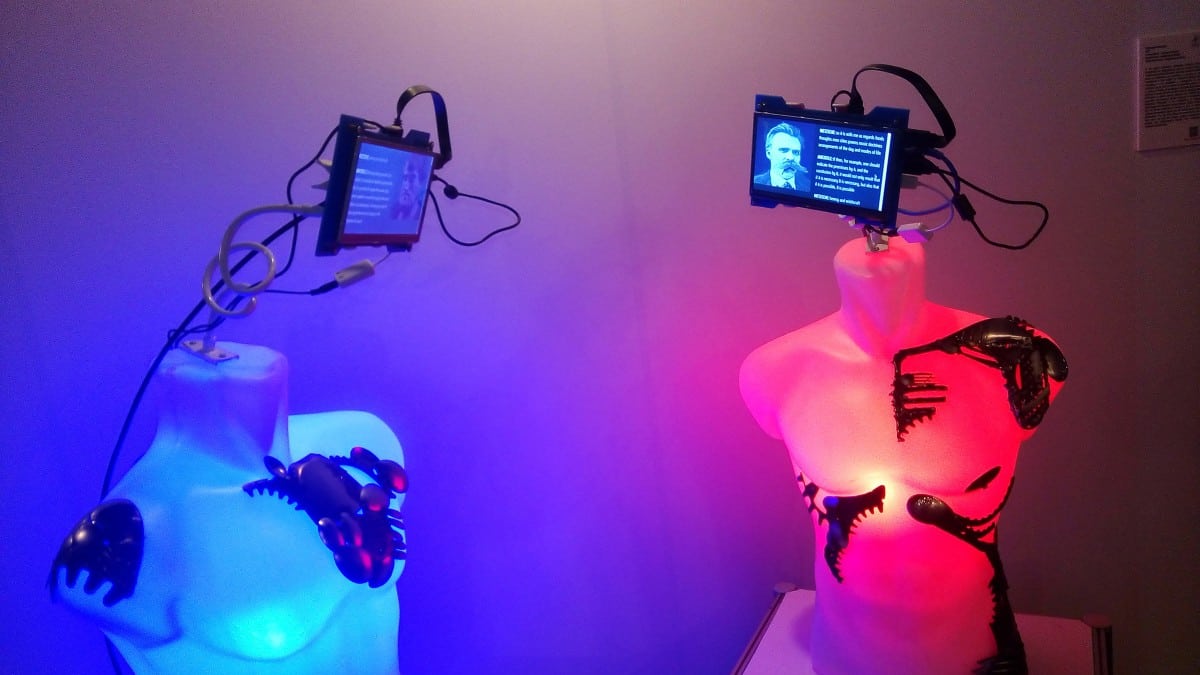 Photo courtesy of Ars Electronica on Flickr
Photo courtesy of Ars Electronica on Flickr
Multinational Artificial Intelligence Race
The US-China trade war has been a constant in the news as of late, and rightfully so as tariffs fly across the globe. However, another important aspect of Sino-US relations is artificial intelligence (AI). On July 18, Demis Hassabis, cofounder of Google DeepMind, and SpaceX CEO, Elon Musk, were among over 2,400 signatories of a pledge dedicated to deterring military firms and nations from developing lethal autonomous weapon systems (LAWs). This mindset is not out of place as advancements in AI have been increasing exponentially, leading to competition and questions about its development and the regulations that must be created to ensure US national security.
AI is growing rapidly—and shows no sign of slowing down. It has the power to greatly alter military operational style, identify billions of people (this has already begun in China), and affect security. Russian President Vladimir Putin has even said that the nation that leads in AI “will become the ruler of the world.”
AI is crucial for national security. It has the power to advance drone warfare, analyze surveillance taken by spy drones, and control autonomous tanks and machinery, among other developments. However, these advancements are not without controversy. The question of where AI and military operations should intersect is still being contested, as seen with the anti-LAWs pledge mentioned previously, and other protests against the intersection.
For instance, Google recently decided not to renew its contract with Project Maven, a Pentagon drone-surveillance program, when employees revolted against the relationship between their work and advancing the drone intelligence that could be used to improve drone strikes. This led to Google releasing a statement clarifying that “while [they] are not developing AI for use in weapons, [they] will continue [their] work with governments and the military in many other areas,” since “these collaborations are important.” The commitment by Google to still “work with governments and the military” is important, and signifies the need for more collaborative AI development in the US.
While, according to many experts, the US “still has a clear lead” in AI, China is gaining speed and quickly approaching US levels of AI. The Chinese State Council released a road map in July 2017 projecting a goal of creating a domestic AI industry worth 1 trillion yuan by 2030. According to Li Meng, the Chinese vice president of science and technology, 2030 will mark the year China becomes the global “innovation center for AI.”
While some US based companies—for instance, Facebook—have utilized China in their AI research, the US needs to be cautious in partnering with China in AI that might advance Chinese military operations. This cautiousness comes to light as there have been talks to curb the amount of partnerships that exist between Chinese and US AI corporations.
These partnerships are widespread. For instance, Nvidia—a leading American hardware company—recently gave away GPU (graphics processing unit) samples to 30 AI scientists. Three of these scientists work with the Chinese government. For Nvidia, this was “business as usual.” Giving away samples helps the company tailor its products and the company maintains that they “don’t give any company, anywhere in the world, the core differentiating technology.” However, AI cooperation between the US and China may lead to more international competition. To demonstrate, reaching (and then surpassing) Nvidia’s level of capabilities is on China’s AI development goals. The Chinese Ministry of Science and Technology listened to research project pitches last year, with one of the research objectives being “to create a chip 20 times faster than Nvidia’s.” The US should be cautious about its own AI being used and then bettered by international competitors.
Ultimately, the US should create laws that promote AI cooperation between its own military, universities, and companies. In doing so, the US would move toward ensuring its AI international competitiveness. Due to AI’s strong relationship with military operations and intelligence, operating as a leader in AI is key for US national security.





